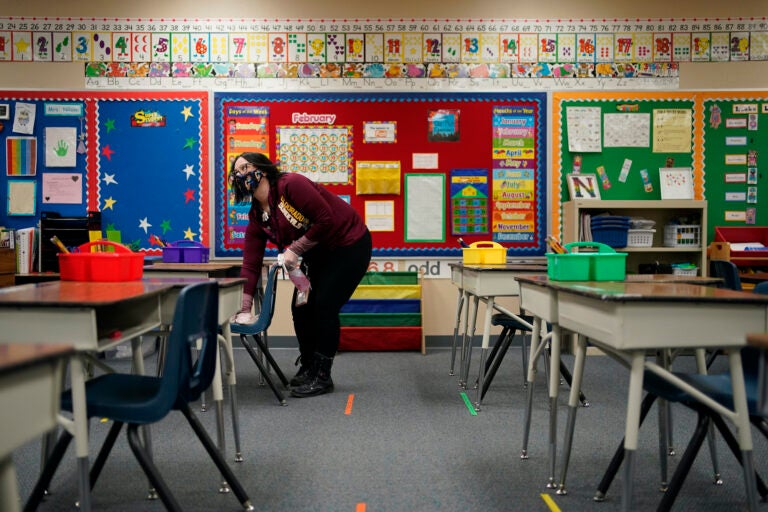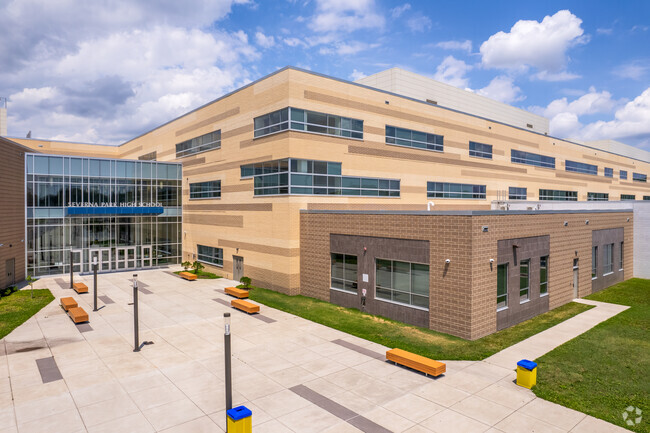Explore the Challenges Facing Our Community: Save Temecula Schools
Explore the Challenges Facing Our Community: Save Temecula Schools
Blog Article
Exactly How Schools Play a Critical Duty in Shaping Future Leaders and Pioneers
Schools contribute fit future leaders and innovators via the farming of important thinking, creativity, and partnership. By incorporating project-based knowing and interdisciplinary research studies, universities test pupils to assess and synthesize complex info. Educators function as coaches, leading pupils and supporting their potential, while after-school activities further create management skills and strength. This dynamic environment not just concentrates on individual staminas yet also emphasizes the importance of team effort, important for navigating tomorrow's difficulties. How exactly do these components interaction to develop a durable structure for future success?
Fostering Critical Believing
In today's swiftly evolving world, cultivating important thinking within schools has come to be paramount. As society grapples with progressively intricate global obstacles, the ability to evaluate, evaluate, and manufacture details is vital. Colleges play a crucial role in establishing these skills, preparing trainees to navigate and attend to multifaceted troubles with informed, reasoned choices.
To grow crucial thinking, teachers employ numerous pedagogical techniques that urge energetic learning and intellectual engagement. Classroom discussions, problem-based knowing, and Socratic examining contribute in advertising logical and reflective mind. By testing pupils to question assumptions and consider several point of views, these approaches make sure a much deeper understanding of subject issue past memorizing memorization.
Moreover, incorporating crucial believing throughout the curriculum reinforces its importance and applicability in diverse contexts. Subjects such as maths, science, history, and literary works each offer distinct possibilities to develop students' essential faculties. For example, analyzing historic occasions calls for recognizing and evaluating sources context, while scientific inquiry demands extensive hypothesis testing and evidence-based thinking.
Eventually, instilling essential believing skills in students furnishes them with the cognitive tools essential for long-lasting learning and versatility. It is with this foundational competence that future leaders will have the ability to introduce, solve issues, and add meaningfully to culture.
Urging Imagination
Accepting imagination within instructional frameworks galvanizes students to assume past standard borders and discover cutting-edge remedies. By integrating creative undertakings and creativity workouts right into the curriculum, institutions grow a setting where originality and imaginative idea are valued. This approach not only improves the instructional experience however likewise furnishes trainees with the capacity to deal with real-world obstacles in novel ways.
University can foster creative thinking with diverse ways such as project-based understanding, interdisciplinary researches, and the consolidation of arts and modern technology. Project-based knowing, for example, motivates trainees to apply their expertise in functional, often joint, tasks that demand creative analytic abilities. Interdisciplinary studies permit students to draw links in between various subjects, thereby expanding their perspectives and improving their creative capabilities.
In addition, supplying students with opportunities to engage with emerging innovations, such as coding and electronic design, better supports their imaginative possibility. These tasks motivate pupils to experiment, stop working, and iterate, which are essential elements of the imaginative process (Save Temecula Schools). By preserving a supportive atmosphere where experimentation is urged, schools can ensure that trainees develop the confidence to seek innovative concepts
In essence, supporting imagination in instructional settings is vital for shaping future leaders and innovators efficient in dealing with intricate global problems with ingenuity.
Encouraging Partnership

Applying group-based learning modules and participating projects permits trainees to experience the dynamics of team effort firsthand. This not just prepares them for the collaborative nature of modern offices but likewise nurtures leadership qualities as they usually have to handle functions such as task managers or group coordinators. In addition, collaboration in the classroom can damage down social barriers and promote inclusivity, making certain that each student really feels valued and heard.
In addition, integrating modern technology can further sustain joint efforts. Devices like shared interactive platforms and electronic work areas make it possible for students to collaborate efficiently, even outside the classroom. As students develop these joint skills, they are better equipped to take on complicated obstacles and innovate, preparing my review here for their future duties as innovators and leaders.
Role of Educators as Advisors

Mentorship includes personalized attention, where instructors determine and support specific staminas and address weaknesses. Save Temecula Schools. Through individually communications, educators can customize their guidance and support to meet each trainee's special needs, cultivating a feeling of confidence and strength. This personalized approach cultivates a growth frame of mind, encouraging pupils to see failures as opportunities for learning and growth
In addition, educators serve as duty models, showing the values of perseverance, integrity, and empathy. Their attitudes and activities give a plan for pupils to emulate, instilling a feeling of ethical responsibility and social understanding. By developing a comprehensive and supportive classroom environment, educators allow trainees to establish social skills that are critical for efficient leadership.
Fundamentally, the mentorship supplied by instructors lays a foundational structure for the growth of future leaders, equipping them with the understanding, skills, and values needed to master an ever-evolving globe.
Impact of After-school Activities
When incorporated efficiently into the instructional structure, extracurricular activities dramatically improve trainee development and leadership possibility. These tasks supply trainees with opportunities to discover interests beyond the standard educational program, fostering a versatile ability collection. Clubs, sporting activities groups, and arts programs grow necessary top qualities such as teamwork, time management, and resilience. Involvement in these activities often calls for students to tackle responsibilities, thereby nurturing their management capabilities.
In addition, extracurricular involvement urges creative thinking and technology. Trainees took part in dramatization, discussion, or songs clubs find out to think seriously and approach troubles from diverse viewpoints. These experiences click for more info impart confidence, making it possible for trainees to articulate their ideas and take campaign in various setups. By teaming up with peers from different histories, trainees additionally establish empathy and communication abilities, important qualities for future leaders.
Study shows that students involved in such programs tend to have higher qualities and far better participation records. Thus, schools that focus on a well balanced strategy to education and learning, integrating durable extracurricular programs, are extra likely to create leaders and trendsetters equipped to meet the challenges of the future.

Verdict
In final thought, colleges considerably form future leaders and pioneers by nurturing crucial visit our website thinking, creative thinking, and partnership amongst students. Involving pedagogical techniques such as project-based understanding and interdisciplinary research studies play a vital duty in this development. Teachers, acting as mentors, supply essential advice and support, while after-school activities better enhance management potential and durability. By fostering an encouraging atmosphere that values private staminas and teamwork, colleges outfit pupils with the required abilities to browse future challenges and drive advancement.
As students establish these collaborative skills, they are much better outfitted to deal with intricate difficulties and innovate, laying the foundation for their future duties as pioneers and leaders.
By promoting vital thinking and problem-solving skills, educators aid students navigate intricate obstacles, preparing them for leadership duties in various areas.
By working together with peers from various backgrounds, trainees likewise develop empathy and communication skills, crucial qualities for future leaders.
In verdict, institutions substantially shape future leaders and pioneers by supporting essential reasoning, imagination, and cooperation amongst pupils. By promoting a supportive setting that values specific staminas and synergy, institutions outfit pupils with the required abilities to browse future difficulties and drive innovation.
Report this page